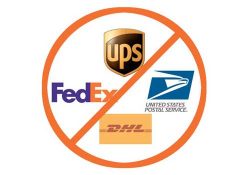
What is the Vape Ban 2021?
Vape companies operating in the United States are facing new challenges due to changes in the Prevent All Cigarette Trafficking (PACT) law.
In late 2020, when the latest COVID-19 relief law came into effect, the PACT law was changed. This extends the PACT Act significantly to include e-cigarettes and all vaping products.
This appears to be directly related to the CDC, which is reporting an increase in vape and ecigs among high school age students. The fear of these products, many of which contain nicotine, could lead a new generation to become addicted to the cancer-related drug and smoking.
While there is no mention of hemp or cannabis in this new law, that does not mean that it is exempt. The “All Vaping Products” Scope is great. This will likely apply to companies that manufacture and sell cannabis vaping products or accessories. This applies to all e-cigs, e-cigars, electronic tubes, vape pens, refillable vaporizers and all parts, components or accessories of such a device.
background
Originally passed under the Obama administration in 2009, PACT was itself an amendment to the Jenkins Act of 1949. This required interstate shippers to report all cigarette sales to the state tobacco tax administration and was introduced to combat illegal sales and tax avoidance. Sixty years later, when the PACT Act came into effect, the FDA simultaneously gained authority over all tobacco products under the Tobacco Control Act. The PACT Act prohibited the US Postal Service (USPS) from delivering cigarettes and smoke-free tobacco products directly to consumers.
What does this mean for dry herb? vapes, CBD Oil, and Cannabis Concentrate Vapes?
Interstate shippers are required to report sales to state tobacco tax administrators to combat illegal sales and tax avoidance.
The PACT law also stipulates that sellers must be registered with the Alcohol, Tobacco, Firearms and Explosives Office (ATF), file a monthly report with the State Tobacco Tax Administrator and any other local or tribal agency that taxes cigarette sales.
The PACT Act also prohibits the use of the US Postal Service (“USPS”) to deliver cigarettes and smokeless tobacco products directly to consumers.
The United States Postal Service has published its proposed changes clarification of the regulations in this regard. You can visit the public register to see the proposed changes. Comments will be available until March 22nd. While we don’t think this will change the outcome, we encourage those affected to add their comments on this page. Vape companies and their customers should expect the mail ban, which will go into effect in April 27., 2021However, many shipping companies will refuse postage until then.
((You can view the text of the proposed changes to publication 52 below https://pe.usps.com.)
In the past, company-to-company shipments were exempt from USPS Delivery ban, but companies intending to use it for these delivery drivers would need to file an application with the USPS Pricing and Classification Service Center first and meet various other shipping and delivery requirements.
However, there are additional costs associated with all of these formalities, and some carriers such as FedEx and UPS have already announced that they will stop all shipments of vaping products on March 1st and April 5th, respectively.
The new legislation also requires all other postal delivery services to check their IDs to verify age upon delivery. All of this increases the cost and burden on couriers, which is why FedEx and UPS are withdrawing their services for these goods.
When companies need to submit a monthly report to the tax department of each state, they are making a sale using the customer data. Selling vapes online, at least to end users, is not profitable for many.
Many vaping advocates, especially those who view e-cigs as a useful smoking cessation tool, see this as yet another attempt to demonize nicotine vaping. And while lawmakers may not be targeting the cannabis industry on purpose, it will clearly have an impact. Finding out the applicable local and state taxes in each state where a company sells its products will be a real challenge on its own. Dealing with 20, 30, or 50 different state tax authorities would likely put many off selling. This is a moot point, however, as without effective delivery options, companies will not be able to ship to end customers anyway, even if they comply with all other regulations.
How will this affect Fifth Ave Green House and our customers?
This U.S. bill banning the shipping of vape products to end customers is likely to cause serious disruptions. We are not sure how or if we can continue to serve end customers with our Fifth Ave Green House Vape products.
To comply with the new laws, Fifth Ave Green House has been researching options such as using expensive technology to screen customers and deal with the extra paperwork created by this ban. Even if we can achieve this, we expect severe disruptions at least for the next few months.
We are working hard to find an alternative private shipping company as all major shipping companies have shipping services for such products or will be withdrawing shortly.
We also encourage all Fifth Ave Green House business account holders, stores, and wholesalers to log into their accounts and verify that all required information has been updated.
Some useful links
https: //www.natlawreview.com/a …
https: //www.federalregister.go …
https: //vaping360.com/vape-new …

Post a comment: